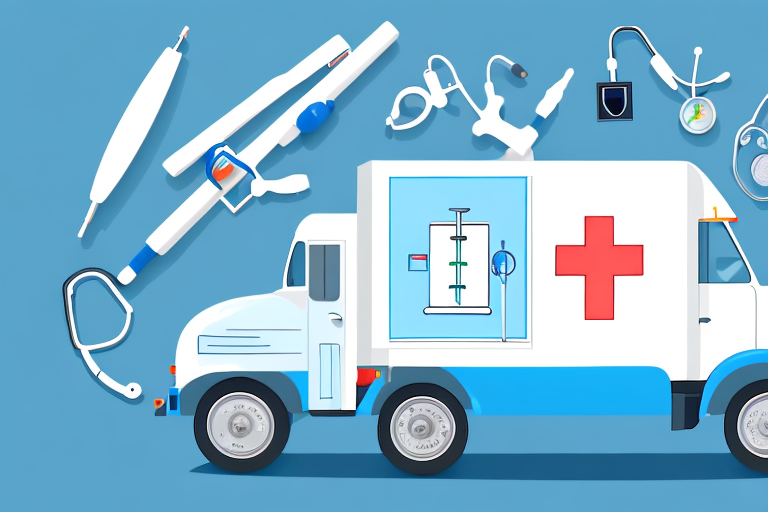Partnering with Medical Equipment Delivery Companies: Enhancing Healthcare Operations
In the dynamic environment of healthcare, efficient logistics and supply chain management are paramount. From ordering and receiving medical equipment to stocking and replenishing supplies, every aspect must be meticulously coordinated. A critical component of this process is medical equipment delivery, which significantly influences the daily operations of healthcare facilities. Collaborating with a reliable medical equipment delivery company can streamline operations, ensure timely deliveries, and help healthcare providers maintain the highest levels of patient care and satisfaction. This article explores the benefits of working with medical equipment delivery companies and outlines key factors to consider when selecting the right partner.
Benefits of Partnering with Medical Equipment Delivery Companies
Streamlining Operations
Medical equipment delivery companies offer a range of services designed to optimize your facility's operations. By leveraging their expertise, these companies can create tailored delivery schedules, ensuring that critical equipment arrives precisely when needed. This eliminates delays and maintains a smooth flow of operations, allowing healthcare providers to focus on patient care rather than logistical concerns.
Ensuring Equipment Safety and Compliance
Reliable delivery companies prioritize the safe transport and handling of medical equipment. They employ specialized packaging and trained personnel to prevent damage during transit. Additionally, these companies stay updated with the latest industry standards and regulatory requirements, ensuring that all equipment is delivered in compliance with relevant guidelines. This adherence to safety standards helps healthcare facilities avoid costly fines and legal issues.
Cost Savings and Efficiency
Outsourcing equipment delivery can lead to significant cost savings. Healthcare facilities can avoid the expenses associated with maintaining an in-house delivery fleet, such as vehicle maintenance, fuel costs, and staffing. According to a Fierce Healthcare report, efficient supply chain management can reduce costs by up to 20%, allowing resources to be redirected towards improving patient care.
Selecting the Right Medical Equipment Delivery Vendor
Key Considerations: Reliability, Experience, and Cost
Choosing the right vendor involves evaluating several critical factors:
- Reliability: Assess the company's track record for on-time deliveries and their ability to handle urgent requests.
- Experience: Look for vendors with extensive experience in handling and transporting medical equipment.
- Cost: Ensure that the pricing is transparent and competitive, without hidden fees.
Comprehensive Guide to Vendor Selection
When selecting a medical equipment delivery vendor, consider the following steps:
- Research and Shortlist: Identify potential vendors through industry recommendations and online reviews.
- Evaluate Services: Compare the range of services offered, including installation, maintenance, and emergency support.
- Check Certifications: Ensure the vendor meets industry certifications and compliance standards.
- Request References: Speak with other healthcare providers who have used the vendor's services.
- Negotiate Terms: Discuss contract terms, pricing structures, and service-level agreements (SLAs).
Enhancing Operational Efficiency through Outsourcing
Increased Efficiency for Medical Practices
Outsourcing delivery services allows healthcare providers to focus on their core functions—delivering quality patient care. By delegating logistics to specialized delivery companies, medical practices can improve overall efficiency and reduce the administrative burden associated with equipment management.
Maximizing Supply Chain Management
Efficient supply chain management is crucial for maintaining the profitability of healthcare facilities. Partnering with a dependable delivery company can streamline supply chain operations, reduce waste, and ensure that necessary equipment and supplies are always available. According to a Healthcare Dive analysis, optimized supply chains can lead to a 15% improvement in operational efficiency.
Ensuring Safe and Timely Deliveries
Safe and Secure Equipment Arrival
Ensuring the safe delivery of medical equipment is non-negotiable. Professional delivery companies employ advanced tracking systems and secure handling procedures to guarantee that equipment arrives in pristine condition. Real-time tracking provides transparency and allows healthcare providers to monitor the status of their deliveries.
Overcoming Common Logistics Challenges
Logistical challenges such as equipment damage, delays, and unexpected costs can disrupt healthcare operations. Many delivery companies address these issues through innovative solutions:
- Advanced Tracking: Real-time monitoring reduces the risk of delays and enhances accountability.
- Specialized Packaging: Customized packaging safeguards equipment during transit.
- Reliable Support: Responsive customer service teams handle issues promptly to minimize disruptions.
The Role of Customized Deliveries in Healthcare
Customized and personalized delivery plans cater to the unique needs of each healthcare facility. By collaborating with vendors to develop tailored schedules, healthcare providers can ensure that essential equipment arrives at designated times and is installed, tested, and calibrated according to specific requirements. This level of personalization enhances operational flexibility and supports the delivery of optimal patient care.
Conclusion
Partnering with a reliable medical equipment delivery company offers substantial benefits to healthcare facilities. From streamlining operations and ensuring timely deliveries to enhancing cost efficiency and maintaining compliance, these partnerships are integral to delivering high-quality patient care. When selecting a delivery vendor, it's essential to consider factors such as reliability, experience, cost, and the ability to provide customized services. By making an informed choice, healthcare providers can optimize their supply chain management, reduce operational costs, and focus on what truly matters—patient well-being.




















